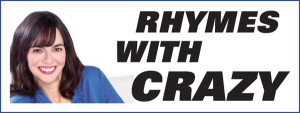By Lenore Skenazy | Superman helped America find its fighting spirit. Captain America did his white male, square-jawed, hetero-normative bit, too. But it was the next generation of superheroes — the mutants — who made us the more tolerant, more feminist, more mutli-culti America we are today — and maybe even gave us gay marriage.
find its fighting spirit. Captain America did his white male, square-jawed, hetero-normative bit, too. But it was the next generation of superheroes — the mutants — who made us the more tolerant, more feminist, more mutli-culti America we are today — and maybe even gave us gay marriage.
Yes, that’s quite a Bruce Wayne-like leap, but comic-book authority Ramzi Fawaz makes it gracefully in his book to be published this fall, “The New Mutants: Superheroes and the Radical Imagination of American Comics.”
His premise is this: When the first superheroes appeared in comic books in the late 1930s, they were drawn by second-generation immigrants —usually New York Jewish guys who wanted to fit in and, while they were at it, beat the heck out of Hitler.
After World War II was won, however, comic books went into a bit of a slump. Not only was there no Fuhrer left to fight, Fawaz says, “But there was the creation of the atomic bomb. How can a superhero compete against that?” The masked men and their creators were starting to sag like old tights.
By the ’50s, comic books were filled with crime and horror, and the House Un-American Activities Committee — the folks generally focused on ferreting out Communists — believed that comics were creating juvenile delinquents. (Just like some folks believe that about video games today.) Comics were in the cultural crosshairs. This could be the end.
But then, like the plot of almost every Marvel masterpiece, the industry came fighting back! It did it by resuscitating the one thing that could save it: The superhero genre. Now no one could accuse the comics of being un-American anymore, because superheroes have always been as American as truth, justice and, well, you get the idea.
Except this time, says Fawaz, the heroes came back with a subversive twist — as mutants.
What kind? Every kind, representing every new idea taking root in American society, says Fawaz.
Take the Fantastic Four. The gang starts out as friends who go on an unauthorized rocket ship trip – “a sort of space race thing,” Fawaz says – but they’re bombarded by cosmic rays that turn them into freaks. Very symbolic freaks.
There’s Ben Grimm, who becomes a human rock called The Thing. And yet, while embodying the traditional male ideal – he’s a rock, after all — he is “extremely emotionally vulnerable,” says Fawaz. “He weeps over his state. He leaves the team at different times because he feels he does not belong.”
He’s not your father’s Superman.
Then there’s Reed Richards, the super-straight, even rigid, scientist. “He works for the government, he’s the breadwinner of the family, and the patriarch,” says Fawaz. “But what happens to him physically is he becomes extremely stretchy, elastic.” Now he’s flexible in every sense of the word.
For her part, Sue, the one and only female, becomes invisible — a sort of cosmic comic metaphor for the invisibility of women, Fawaz believes. And yet, she can use that power to her advantage, and what was a weakness becomes a strength. Hear her roar!
And finally there’s Johnny Storm, a.k.a. the Human Torch — a teen who turns to flame, just because…teens turn to flame. And maybe because people were starting to set themselves on fire to protest injustice. Look, not everything is a perfect allegory.
After the Fantastic Four, the X-Men comics were reintroduced not as the five suburban white kids they’d started out as, but a gaggle of multi-cultural mutants including Wolverine, Nightcrawler, Colossus, Phoenix and perhaps most powerfully Storm — an African-American goddess who controls the weather, saves the world and, according to Fawaz, also embodies a whole lot of the disco aesthetic: glitzy, gay-friendly, fabulous.
All these character are outcasts who are stronger thanks to their “flaws,” and undefeatable once they find, accept and join each other. So while they didn’t explicitly fight for gay marriage — at least not in the ’60s and ’70s, when they first got off the ground — ever since the superheroes started mutating it has been like the feminists meet the civil rights workers meet the anti-war activists meet the L.G.B.T. crowd, and together they can change the world.
And considering their REAL superpower — inserting new ideas into the public mind under the guise of fun — maybe they did change the world after all.
Lenore Skenazy is a keynote speaker and author and founder of the book and blog Free-Range Kids.



































